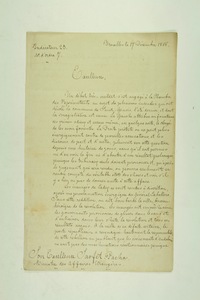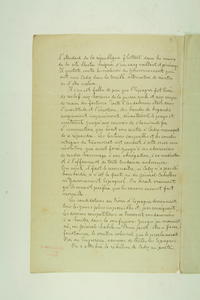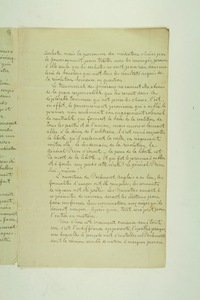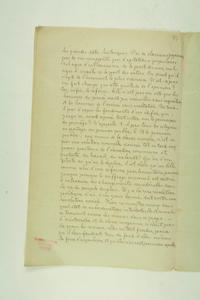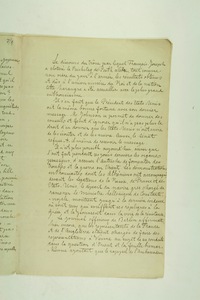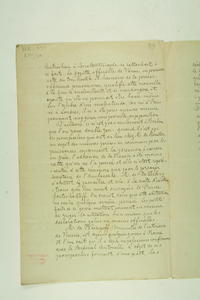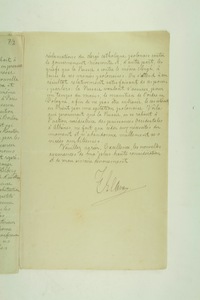Ottoman Diplomats
Letters from the Imperial Legation in Brussels (1849–1914)
Synopsis
Glavany reports about what he calls an irritating debate in the Belgian Chamber of Representatives, about fires that were started deliberately in a Belgian village. The left (the liberals) attributed this crime to fanatics, even accusing the clergy. The right (the Catholics) protested against these accusations. The debates seemed to lead to no end. In Spain, the rebels of Cadiz had surrendered discretely. Otherwise the revolutionary city would have been attacked. Glavany seems glad about this capitulation, because according to his predictions, the further expansion of the rebellion would otherwise have led to an escalation of the civil war. This situation caused fear for liberty within the Spanish government, that had promised to stay neutral. Glavany also mentions the start of the parliamentary year in England. He was struck by the indifference of the English people towards the parliament, as if they took democracy and the constitutional reforms for granted. To him, this lack of enthusiasm was proof of the still existing intellectual and moral subordination of the middle class to the aristocracy. Glavany continues his report by stating that it was not possible anymore (for Prussia) to accuse Austria of fuelling war and uprising in the Orient. Prussia, Russia and the United States were those who seemed to have a double agenda or even fuelled the rebellion. Glavany gives some examples that confirm his suspicions, and he states that such small facts tell more about the real intentions than official declarations usually do.
Facsimiles
How to cite
If you use this website for your own research, we kindly ask you to mention the following reference in your publications:
Consulted online at Ottoman Diplomats: Letters From the Imperial Legation in Brussels (1849–1914) (2014 Edition), Centre for Political History (PoHis), University of Antwerp, <http://dighum.uantwerpen.be/ottomandiplomats/>.
